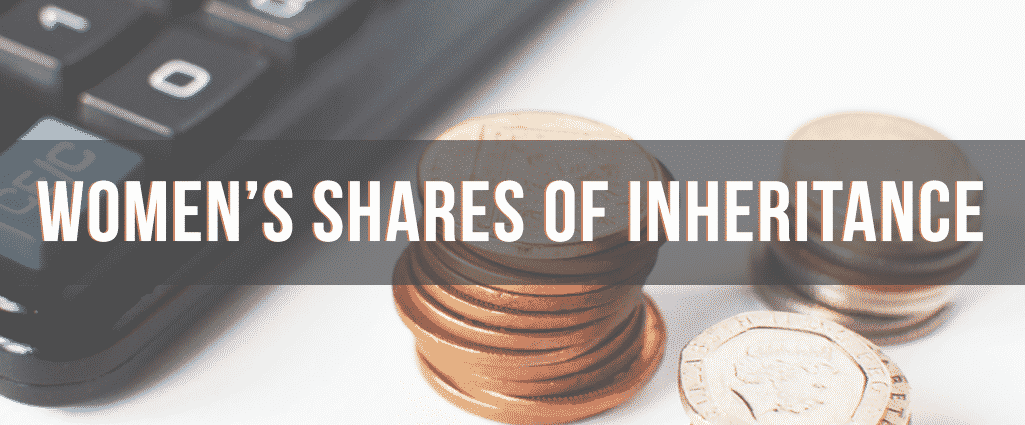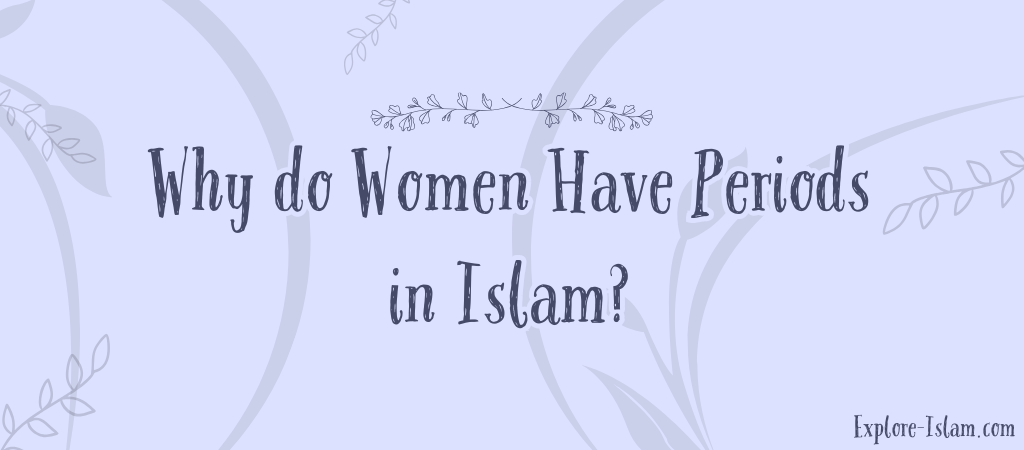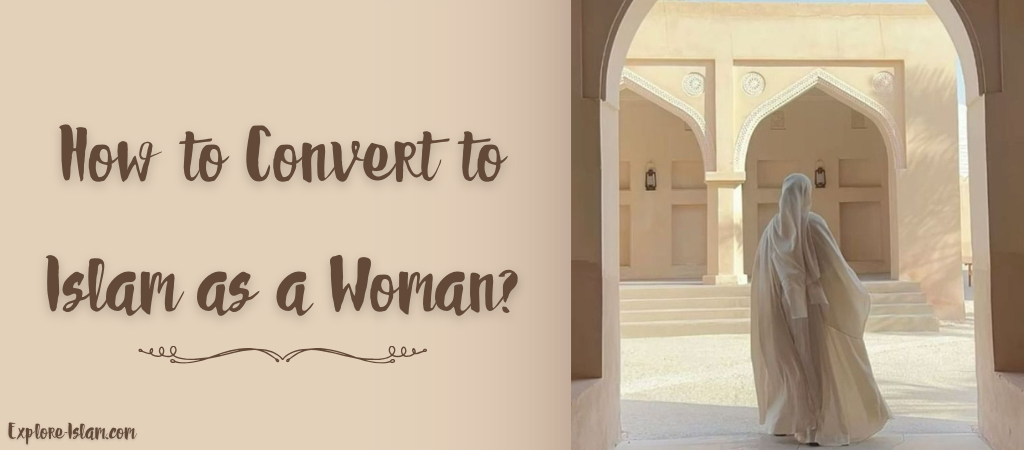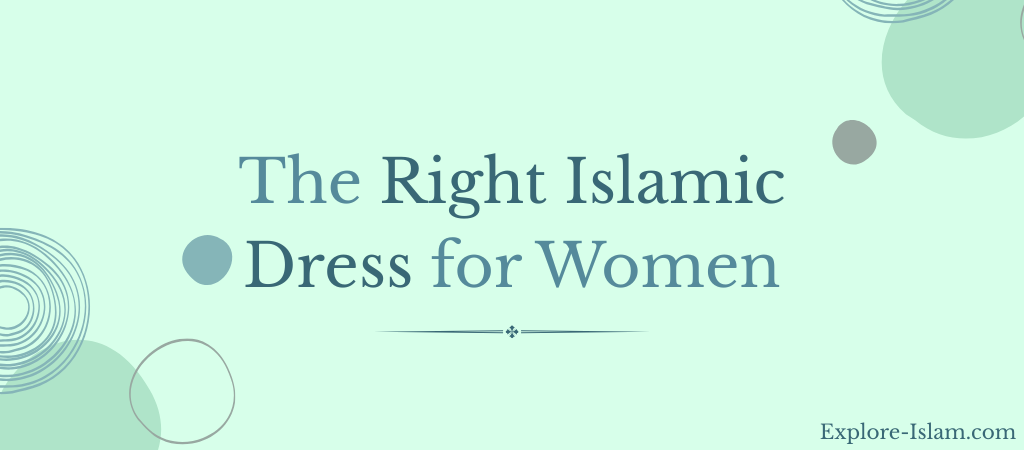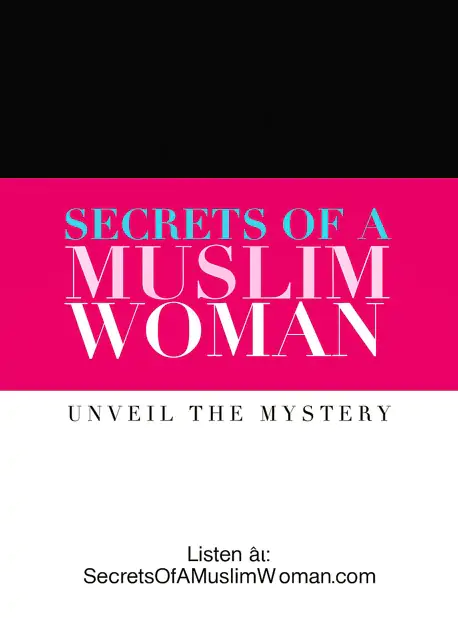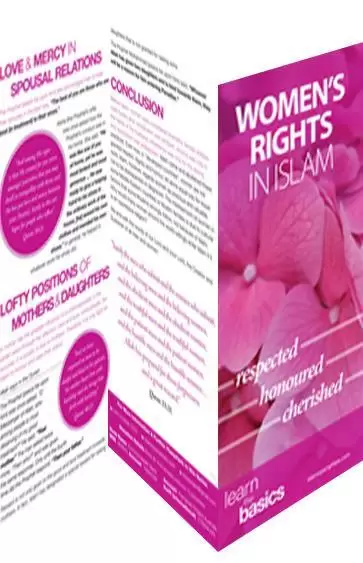“… For the male, what is equal to the share of two females…” [Qur’an 4-11](1)
Candidly, the “women’s shares of inheritance” is a divine-laid law of inheritance, that of Islam, so, Muslims cannot argue, alter or disobey it. “A Male’s Share Will be Equal to that of Two Females”, may be the most commonly used misconception to show (in contradiction to reality) how anti-feminist Islam is. “Ilm al-fara’id” (Islamic law of Inheritance) is divine in origin, obligatory to apply and completely just when one contemplates on its rules.
It would be “an understatement” to say, how wrongly women’s shares of inheritance in Islam are viewed, and how badly Ilm al-fara’id is misunderstood by non-Muslims. To shed light on the situation, we have to examine it carefully. So, I propose to start with some definitions, a little bit of history, then a small ‘comparative religions’ on the subject, and finally, a clear account of women’s true status in Ilm al-fara’id.
So, here we go…
First, Definitions:
Islamic inheritance law or Ilm al-fara’id, is a sub-science of Islamic Shari’ah (Islamic canonical law based on the teachings of the Qur’an and the Prophetic tradition of Muhammad (Hadith and Sunna). Ilm al-fara’id is composed of: Jurisprudence of inheritance and Mathematics; to calculate and determine shares of heirs. It is also known as the science of legally prescribed inheritance shares, which as implied; a divinely ordained (by God) legal system of shares to heirs.
‘ Inheritance ‘ is transferring one’s wealth to another in succession.
‘ Tarikah‘ is the estate of the deceased (all assets and liabilities).
So, where do Muslims get their Ilm al-fara’id from?
- 95% is from the Qur’an (the chapter of an-Nisa’/ verses11, 12 and 176)
- Some principles from Sunnah (Prophetic tradition), e.g. Grandmother’s inheritance.
- The Consensus of Sahabah (Companions of Muhammad).
- Qiyas (logical deduction) in two Issues only.
- Controversial issues e.g. the grandfather’s inheritance.
This shows how divine the rules for shares of inheritance are. Then you realize that Muhammad (PBUH) could not pass rulings without God’s permission and approval.
Second, History:
Islam started in Makah, which is in the heart of the Arabian Peninsula. It was a harsh tribal community that had no regards for women. A woman’s status in general back then was worse than that of an animal. There were only a few exceptions to the mistreatment of women. Actually, the mistreatment of them was considered the cultural norm in their day and time.
Back then, as an infant, a woman could be buried alive by her own father in fear of poverty or shame of her being enslaved in wars. Where, wars over there were erupted for decades over trivial matters. As a woman, she would be married off to the highest bidder or whomever, without her consent. Her child, unless claimed by the father, would not be legitimate.
Moreover, she could be left separated from her husband indefinitely without hope of divorce, or in a no-number-limited polygamous marriage with no rights observed at all. Once widowed, the relatives of the deceased husband would inherit her along with the estate or let her stay unmarriageable indefinitely. She had no financial independence and usually does not inherit (she could be a part of the inheritance), as Arabs preferred to give inheritance to those who could participate in a war.
That was the state in the Arabian tribal societies back then. But what about other societies? Let’s see…
Third, the ‘comparative religions’ part:
There were not that many Christians in the Arabian Peninsula, but their women were not that much better off; by 581 A.D., a church council at Mâcon was debating whether or not women had souls. Actually, historically, the church’s position on this matter followed the Biblical texts such as Genesis 3:16 where God tells Eve that her husband will rule over her, and passages where wives are listed along with a man’s other goods and chattels.
She was mentioned as the source of all evil, temptations, and caused Adam to be expelled from Heaven. There was no divorce in Christianity, no legal shares of inheritance except in absence of males and she was an inferior being to say the most, according to the Church. In fact, it is still common, to this day, in Christian countries for a married woman to be denied credit, and to require her husband’s consent for surgical operations and many more degrading practices.(2)
On the other hand, there were quite a few Jewish tribes in the Arabian Peninsula. They were mainly located at Al-Medina and areas around it. Their women were subjected to similar conditions to those of Christian women. After all, Christian legislation comes from Judaism and the Old Testament.
To make my point, a blessing, which orthodox Jewish men are required to say every day to give thanks to God goes like, “Thanks a God who has not made me a woman”. Torah must not be taught, legally, to women rather her husband must teach her because “The mind of woman is not suited to be taught, but [only] to words of nonsense.”
Kindly check the references (3) & (4), to get a clearer picture.
Finally, a clear account of women’s shares of inheritance:
Men and women are equal in the eyes of Ilm al-fara’id (Islamic law of inheritance) despite the difference in shares which is based on:
- Their closeness to the deceased
- The generation to which the heirs belong to
- Their individual financial responsibilities
God “Allah” says in the Qur’an,
For men is a share of what the parents and close relatives leave, and for women is a share of what the parents and close relatives leave, be it little or much – an obligatory share.” [Qur’an 4-7](7)
This means that both men and women, each is legally entitled to shares of inheritance in Islam according to Allah’s ordination.
That being said, the position of women in Islamic inheritance is amazing. A Muslim woman is not obligated what so ever to spend her money on anyone except for herself. She has separate and complete control over her finances. Yet, she inherits mostly more than a man in her status (relation to the deceased) in all al-fara’id.
Even if she has money and her husband doesn’t, she is not obligated to spend on him or their children, and if she does, its charity. A Muslim woman has complete financial independence, yet her guardian is commanded to support her to his best capability. That is true except in case he was completely poor; and even in this case, it is debatable amongst Muslim scholars whether the guardian should pay her that money back or not.
So, let’s break it down:
Amal Abd al-Aziz al-Fiqi states in her book, “Amazing Facts of Inheritance”, after studying Ilm al-fara’id, she found that “women inherit more than men (in a similar relation to the deceased) as a rule“, and that a woman is in one of four states in Islamic Inheritance as follows, a women inherits:
- Half of a man’s share in only four situations.
- She inherits as a man in seventeen situations.
- A woman inherits more than a man in twenty-one situations.
- She inherits while a man doesn’t at all in five situations.
In brief, see the following chart:
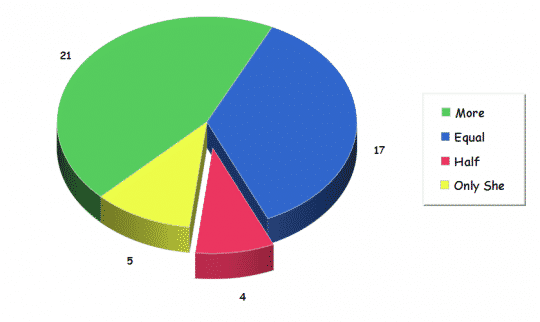
Some books of Ilm al-fara’id would add a fifth situation; a wife inherits a quarter of a Tarikah while a husband inherits a full half in case the deceased has had no offspring. This is because a man has more substantial responsibilities than a woman. Moreover, that is a situation that never happens simultaneously (no deceased has a husband and a wife at the same time). That is why we have not included it in here.
This calls for more detail which goes as follows:
There are only four situations of all inheritance situations where a male’s share will be equal to that of two females:
- A daughter of a deceased with male brothers, and a son’s daughter with a son’s son (a woman gets half that of a man’s share).
- The father (inherits 1/3) and the mother (inherits 1/6), in case the deceased had no children or husband/wife.
- Sister of a deceased with male brothers.
- Half-sister of a deceased on father’s side, with male brothers.
Consider other inheritance situations where: women inherit more than their male counterpart, the same amount, or inherit something while their male counterpart doesn’t inherit anything.
This is not a book of jurisprudence, so, we will not get into more details; but I urge you, only if you are interested, to read more on the following reference(5).
To conclude:
Muslim women’s shares of inheritance in Islam are “Divinely” fair and just. Muslim women are not victims in Islam. On the contrary, they are honored, loved and cared for in all ways and forms, more than any other woman in this world; Ilm al-fara’id is undeniable proof.
References
(1) Verse (4-11) of Qur’an (English interpretation of meaning).
(2) http://www.heretication.info/_womensrights.html
(3) https://www.haaretz.com/1.5223302
(4) https://www.theguardian.com/commentisfree/belief/2009/jun/10/judaism-women-feminism-orthodox
(6) https://www.readingstudios.com/uploads/5/2/4/6/52467441/inheritance.pdf
(7) Verse (4-7) of Qur’an (English interpretation of meaning).

